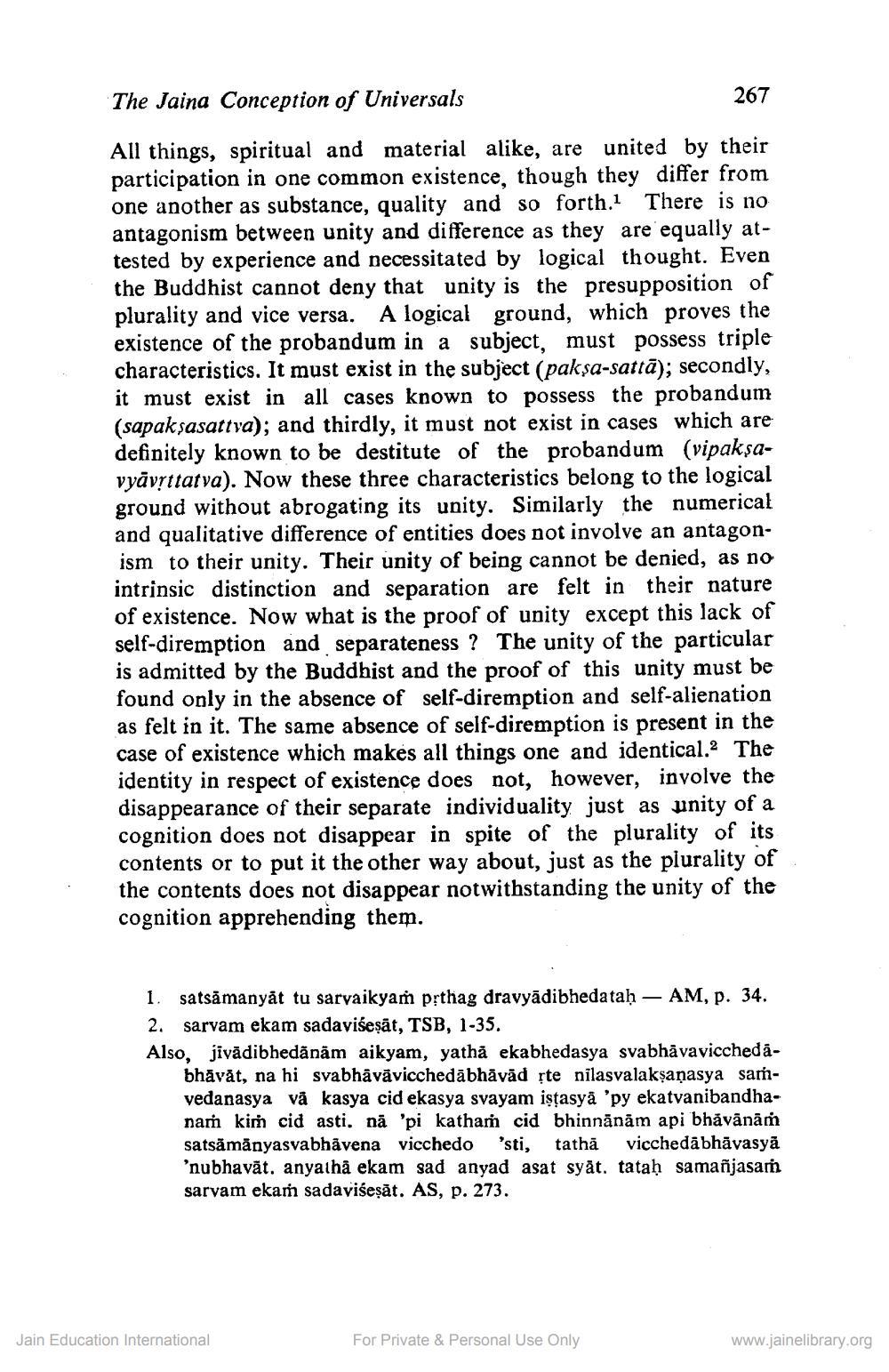________________
The Jaina Conception of Universals
All things, spiritual and material alike, are united by their participation in one common existence, though they differ from one another as substance, quality and so forth. There is no antagonism between unity and difference as they are equally attested by experience and necessitated by logical thought. Even the Buddhist cannot deny that unity is the presupposition of plurality and vice versa. A logical ground, which proves the existence of the probandum in a subject, must possess triple characteristics. It must exist in the subject (paksa-sattā); secondly, it must exist in all cases known to possess the probandum (sapaksasattva); and thirdly, it must not exist in cases which are definitely known to be destitute of the probandum (vipaksavyāvṛttatva). Now these three characteristics belong to the logical ground without abrogating its unity. Similarly the numerical and qualitative difference of entities does not involve an antagonism to their unity. Their unity of being cannot be denied, as no intrinsic distinction and separation are felt in their nature of existence. Now what is the proof of unity except this lack of self-diremption and separateness? The unity of the particular is admitted by the Buddhist and the proof of this unity must be found only in the absence of self-diremption and self-alienation as felt in it. The same absence of self-diremption is present in the case of existence which makes all things one and identical.2 The identity in respect of existence does not, however, involve the disappearance of their separate individuality just as unity of a cognition does not disappear in spite of the plurality of its contents or to put it the other way about, just as the plurality of the contents does not disappear notwithstanding the unity of the cognition apprehending them.
267
1. satsāmanyat tu sarvaikyam pṛthag dravyādibhedataḥ - AM, p. 34. 2. sarvam ekam sadaviseṣāt, TSB, 1-35.
Also, jivādibhedānām aikyam, yatha ekabhedasya svabhāvaviccheda
bhāvāt, na hi svabhāvāvicched ābhāvād ṛte nilasvalakṣaṇasya samvedanasya va kasya cid ekasya svayam iṣṭasya 'py ekatvanibandhanam kim cid asti. na 'pi katham cid bhinnānām api bhāvānāṁ satsāmānyasvabhävena vicchedo 'sti, tathā vicchedābhāvasyā 'nubhavät. anyatha ekam sad anyad asat syat. tataḥ samañjasaṁ sarvam ekam sadaviśeṣāt. AS, p. 273.
Jain Education International
For Private & Personal Use Only
www.jainelibrary.org




